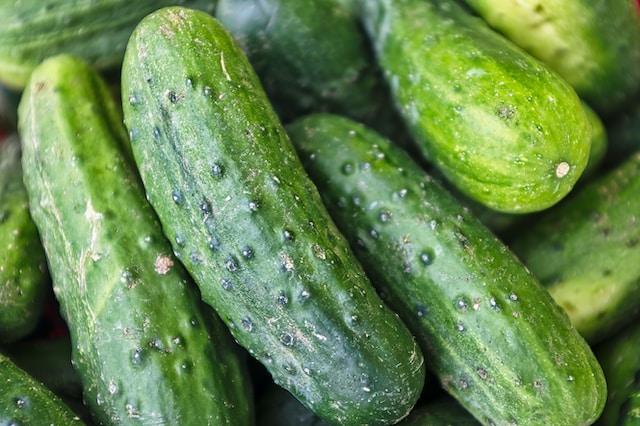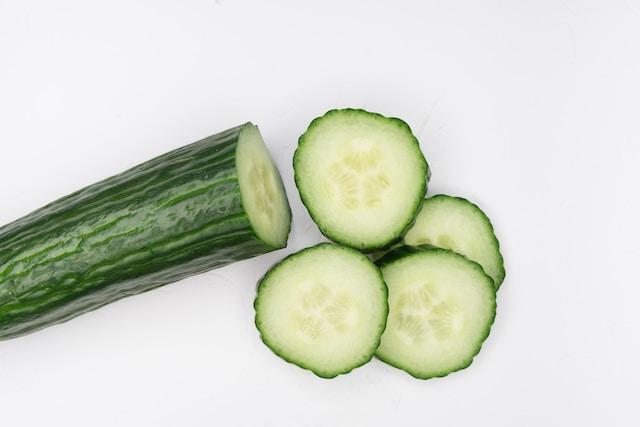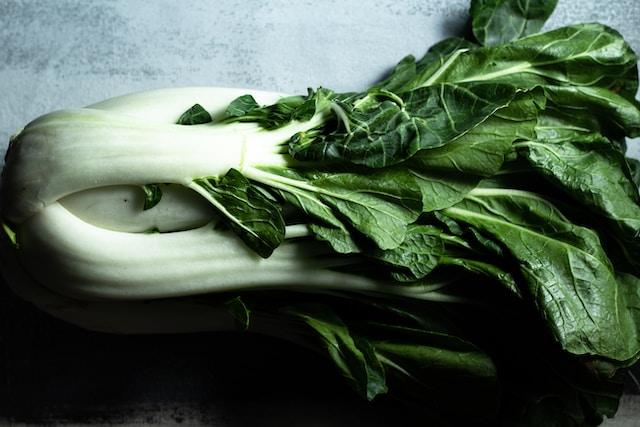No products in the cart.
5 Amazing Health Benefits of Eating Cucumbers Every Day

Cucumbers may not be the most glamorous vegetable on the block, but they sure do pack a punch when it comes to health benefits. These green, crunchy beauties are not only a refreshing addition to a salad, but they can also keep you hydrated, boost your brainpower, and even lower your risk of cancer. So, forget the diamonds, because cucumbers are truly a girl’s (and guy’s) best friend!
1. Nutritional Value of cucumbers
Cucumbers are a nutrient-dense vegetable that provides a range of essential vitamins, minerals, and other beneficial compounds. Here is a breakdown of the nutrients found in one cup (approximately 104 grams) of sliced cucumbers:
- Calories: 14
- Carbohydrates: 3 grams
- Fiber: 1 gram
- Protein: 1 gram
- Fat: 0 grams
In terms of vitamins, cucumbers are a good source of vitamin C, providing approximately 4% of the daily recommended intake per cup. Vitamin C is an antioxidant that helps support a healthy immune system and protects against oxidative stress. Cucumbers also contain vitamin K, which is important for blood clotting and bone health, providing about 12% of the daily recommended intake per cup.
Cucumbers are also rich in several important minerals. One cup of sliced cucumbers provides approximately 4% of the daily recommended intake of potassium, which is important for regulating blood pressure and maintaining healthy heart function. Cucumbers also contain small amounts of magnesium, phosphorus, and calcium, which are important for strong bones and overall health.
Additionally, cucumbers contain several beneficial compounds, including antioxidants and anti-inflammatory agents. Cucumbers contain flavonoids such as quercetin, apigenin, and luteolin, which have been linked to a reduced risk of chronic diseases such as cancer and heart disease. They also contain compounds called cucurbitacins, which have anti-inflammatory properties.
2. High in Antioxidants
Cucumbers are packed with a variety of antioxidants, which can help protect the body from damage caused by harmful free radicals. Antioxidants are substances that can neutralize free radicals, which are unstable molecules that can damage cells and contribute to the development of chronic diseases.
One of the main antioxidants found in cucumbers is vitamin C. Just one cup of sliced cucumbers contains approximately 4% of the daily recommended intake of vitamin C. This antioxidant is important for supporting a healthy immune system, protecting against oxidative stress, and helping to prevent chronic diseases such as heart disease and cancer.
Another important antioxidant found in cucumbers is beta-carotene. This antioxidant is converted into vitamin A in the body, which is essential for maintaining healthy skin, vision, and immune function. Beta-carotene has also been linked to a reduced risk of chronic diseases such as cancer and heart disease.
Cucumbers also contain a group of antioxidants called flavonoids. Flavonoids such as quercetin, apigenin, and luteolin have been shown to have anti-inflammatory and anti-cancer properties. These compounds can help reduce inflammation in the body and protect against the development of cancer cells.
In addition to these antioxidants, cucumbers also contain several other beneficial compounds that can help protect against oxidative stress and reduce the risk of chronic diseases. For example, cucumbers contain lignans, which have been shown to have anti-cancer properties. They also contain compounds called cucurbitacins, which have anti-inflammatory properties.

3. Cucumbers Promote Hydration
Did you know that cucumbers are an excellent way to stay hydrated? That’s right! Cucumbers are made up of around 95% water, making them an incredibly hydrating food choice.
Staying hydrated is crucial for overall health and wellbeing. When you don’t drink enough fluids, you can become dehydrated, which can cause headaches, fatigue, and even lead to more serious health issues. That’s why it’s so important to drink plenty of fluids throughout the day, and cucumbers are an easy and tasty way to do just that.
In addition to their high water content, cucumbers also contain electrolytes such as potassium, magnesium, and calcium, which are essential for maintaining proper hydration levels in the body. These electrolytes help regulate the balance of fluids in the body, ensuring that your cells have enough water to function properly.
Eating cucumbers can also help you feel full and satisfied, which can be particularly helpful if you’re trying to maintain a healthy weight. Because they’re so hydrating, cucumbers can help fill you up without adding a lot of calories or sugar to your diet.
There are many ways to enjoy cucumbers and stay hydrated throughout the day. You can slice them up and add them to salads or sandwiches, use them as a healthy dip for veggies, or even infuse water with cucumber slices for a refreshing and hydrating beverage.
4. Cucumbers may assist in weight loss
Cucumbers are a great addition to a weight loss diet because they are low in calories and high in water content. One cup of sliced cucumber contains only 16 calories, making them an excellent snack or addition to meals for those looking to lose weight.
Cucumbers are also high in fiber, with one cup of sliced cucumber containing 1 gram of fiber. Fiber is important for weight loss because it helps you feel full and satisfied, which can help you eat fewer calories throughout the day.
In addition to their low calorie and high fiber content, cucumbers are also a great source of nutrients that can support weight loss.
For example, cucumbers are high in vitamin C, which can help boost your metabolism and increase fat burning.
Cucumbers are also rich in minerals like potassium, which can help regulate fluid balance and prevent water retention, and magnesium, which plays a role in energy metabolism and can help reduce cravings for sugar and other high-calorie foods.

5. Cucumbers Reduces Blood Sugar
Cucumbers are a great food choice for those looking to manage their blood sugar levels. They are low in carbohydrates and calories, which means they won’t cause a significant spike in blood sugar levels after eating.
In addition to being low in carbs, cucumbers also contain a compound called cucurbitacin, which has been shown to have anti-diabetic properties. Cucurbitacin may help stimulate the production of insulin, a hormone that helps regulate blood sugar levels. This can be especially beneficial for those with type 2 diabetes or insulin resistance, as it can help improve their body’s ability to use insulin effectively.
The Bottomline
Cucumbers are a healthy and low-calorie snack. It has numerous nutritional and health benefits as discussed on this blog.
They are low in calories, high in water content, and packed with important vitamins, minerals, antioxidants, and other beneficial compounds.
Cucumbers have been shown to promote hydration, aid in weight loss, reduce blood sugar levels, and even lower the risk of certain cancers.
Cucumbers are a great addition to any diet, whether eaten raw as a snack, added to salads or sandwiches, or used to make refreshing drinks and dips.


